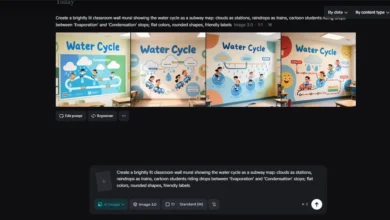
Optimizing appointment scheduling in an increasingly rapid healthcare environment is paramount for improving patient experience, offloading administrative burdens, and maximizing general healthcare efficiency.
Automated Appointments—Healthcare appointment scheduling software has completely transformed the appointment booking process by automating appointments. It also helps to reduce no-shows while establishing seamless communication between healthcare professionals and patients.
With accelerated demand for healthcare IT solutions serving as the order of the day, more healthcare professionals are now adopting healthcare IT solutions to optimize the workflow and enhance patient satisfaction.
Latest Market Statistics
With telemedicine, digitalization, and a growing need for better patient management, the healthcare appointment scheduling software market has been developing quickly.
According to Market Research Future, the appointment scheduling software market is expected to grow at a CAGR of 9.8% from 2023 to 2030 and reach around $546.31 million by 2030.
According to Grand View Research, appointment scheduling software has the largest market share in the healthcare sector as it becomes more digitalized.
According to a McKinsey report, close to 76% of patients prefer to book appointments online rather than using traditional methods, which increases the demand for healthcare scheduling solutions.
Features of Healthcare Appointment Scheduling Software
The following are features that every healthcare appointment scheduling software must have to improve patient experience and reduce administrative load:
- Online Appointment Scheduling: Allows patients to schedule, reschedule, and cancel appointments from home, reducing phone call reliance.
- Automated Reminders and Notifications: Reminds patients via SMS, email, or push notifications to reduce no-shows and keep them informed.
- Telemedicine Integration: Enables virtual visits to provide care for homebound and distant patients.
- Calendar and Scheduling Management: This feature provides a single dashboard for healthcare professionals to effectively schedule multiple calendars.
- Electronic Health Record (EHR) Integration ensures easy patient record access, enhances individualized treatment, and reduces data duplication.
- Multi-Location Support: Supports appointment scheduling for healthcare organizations with practices in different locations.
- HIPAA Compliance and Data Security: Provides secure management of sensitive patient information while maintaining regulatory compliance standards.
Benefits of Healthcare Appointment Scheduling Software
Healthcare appointment scheduling software use offers different benefits to patients and healthcare providers:
- Enhanced Patient Experience: Simple interfaces and real-time scheduling reduce patient wait times while improving convenience.
- Reduced Administrative Burden: Automated scheduling and management of appointments enable personnel to focus on patient care.
- Boosted Revenue and Fewer No-Shows: Automated reminders minimize no-shows, optimizing provider schedules and increasing revenue streams.
- Better Provider Efficiency: EHR integration gives physicians and healthcare providers direct access to patient data, optimizing treatment options.
- More Accessibility with Telehealth: Telemedicine allows more patients to be treated without the need to travel physically, particularly in rural areas.
The Role of Software Consulting Services in Healthcare Scheduling Solutions
Healthcare appointment scheduling software integration and development require software consulting services expertise. Such consulting services help healthcare organizations by:
Customizing Software Solutions: Tailoring the scheduling software to the specific needs of hospitals, clinics, and telemedicine providers.
Integration with Existing Systems: Ensuring seamless integration with EHR, billing, and telemedicine solutions.
Compliance with Regulations: Implementing software that is compliant with healthcare compliance standards like HIPAA.
Regular Maintenance and Support: Providing regular system updates, security patches, and troubleshooting to keep the software efficient.
Healthcare Appointment Scheduling Software Trends in the Future
The future of healthcare software development services is fast evolving with advancements in new technologies. Some of the significant trends are:
- AI-Based Scheduling Assistants: AI-based chatbots and virtual assistants help automate booking, rescheduling, and answering patient questions.
- Blockchain for Data Security: Enhances data security and preserves patient confidentiality by encrypting confidential information.
- Wearable Device Integration: Intelligent devices track patient health indicators and interface with scheduling software for pre-arranged appointment scheduling.
- Voice-Activated Booking Systems: Patients can book appointments using voice assistants like Alexa or Google Assistant, increasing accessibility.
With the increasing need for healthcare IT solutions, healthcare appointment scheduling software has become an application for telemedicine providers, hospitals, and clinics. When AI integrates with blockchain and telehealth, appointment scheduling will be more Client-centric, efficient, and secure.
Professional software consulting services can help healthcare organizations implement and align scheduling solutions as required. The healthcare industry gravitates towards digitalization, and appointment scheduling software will be one of the basic elements for improving healthcare delivery and patient satisfaction.

















